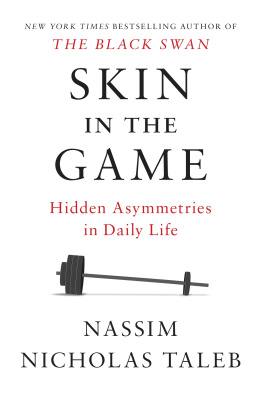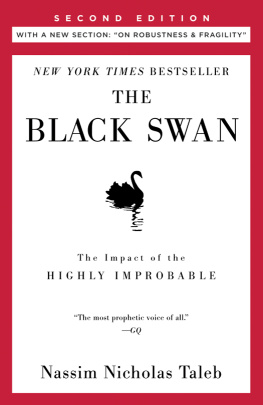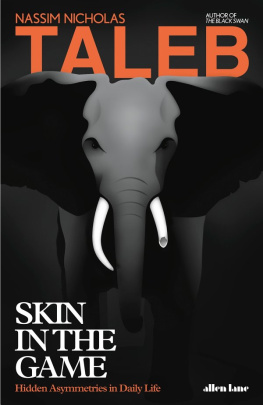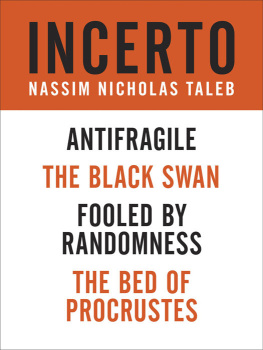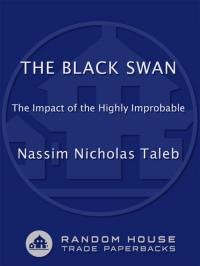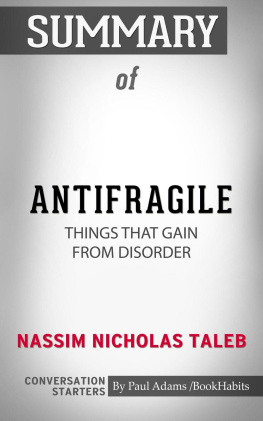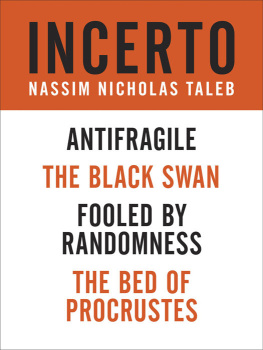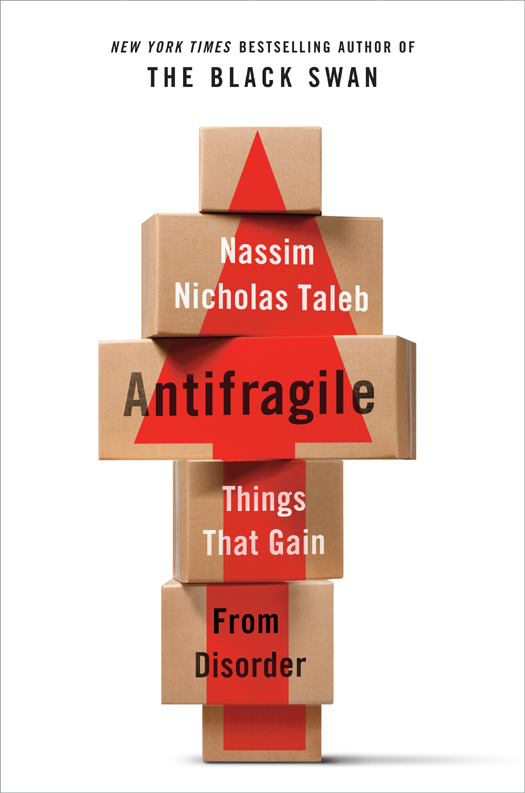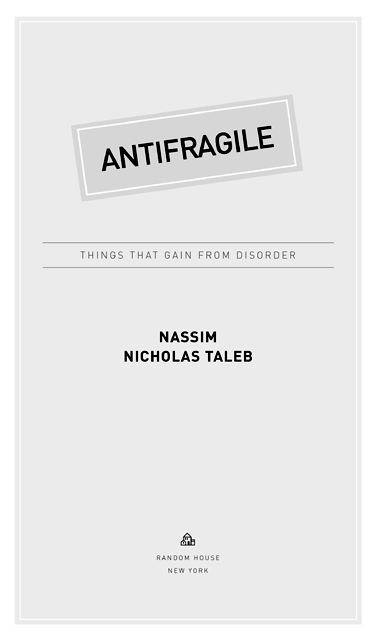Nassim Nicholas Taleb - Antifragile: Things That Gain from Disorder
Here you can read online Nassim Nicholas Taleb - Antifragile: Things That Gain from Disorder full text of the book (entire story) in english for free. Download pdf and epub, get meaning, cover and reviews about this ebook. year: 2012, publisher: Random House, genre: Politics. Description of the work, (preface) as well as reviews are available. Best literature library LitArk.com created for fans of good reading and offers a wide selection of genres:
Romance novel
Science fiction
Adventure
Detective
Science
History
Home and family
Prose
Art
Politics
Computer
Non-fiction
Religion
Business
Children
Humor
Choose a favorite category and find really read worthwhile books. Enjoy immersion in the world of imagination, feel the emotions of the characters or learn something new for yourself, make an fascinating discovery.

- Book:Antifragile: Things That Gain from Disorder
- Author:
- Publisher:Random House
- Genre:
- Year:2012
- Rating:4 / 5
- Favourites:Add to favourites
- Your mark:
Antifragile: Things That Gain from Disorder: summary, description and annotation
We offer to read an annotation, description, summary or preface (depends on what the author of the book "Antifragile: Things That Gain from Disorder" wrote himself). If you haven't found the necessary information about the book — write in the comments, we will try to find it.
Just as human bones get stronger when subjected to stress and tension, and rumors or riots intensify when someone tries to repress them, many things in life benefit from stress, disorder, volatility, and turmoil. What Taleb has identified and calls antifragile is that category of things that not only gain from chaos but need it in order to survive and flourish.
In The Black Swan, Taleb showed us that highly improbable and unpredictable events underlie almost everything about our world. In Antifragile, Taleb stands uncertainty on its head, making it desirable, even necessary, and proposes that things be built in an antifragile manner. The antifragile is beyond the resilient or robust. The resilient resists shocks and stays the same; the antifragile gets better and better.
Furthermore, the antifragile is immune to prediction errors and protected from adverse events. Why is the city-state better than the nation-state, why is debt bad for you, and why is what we call efficient not efficient at all? Why do government responses and social policies protect the strong and hurt the weak? Why should you write your resignation letter before even starting on the job? How did the sinking of the Titanic save lives? The book spans innovation by trial and error, life decisions, politics, urban planning, war, personal finance, economic systems, and medicine. And throughout, in addition to the street wisdom of Fat Tony of Brooklyn, the voices and recipes of ancient wisdom, from Roman, Greek, Semitic, and medieval sources, are loud and clear.
Antifragile is a blueprint for living in a Black Swan world.
Erudite, witty, and iconoclastic, Talebs message is revolutionary: The antifragile, and only the antifragile, will make it.
Praise for Antifragile
Ambitious and thought-provoking . . . highly entertaining.The Economist
A bold book explaining how and why we should embrace uncertainty, randomness, and error . . . It may just change our lives.Newsweek
Revelatory . . . [Taleb] pulls the reader along with the logic of a Socrates.Chicago Tribune
Startling . . . richly crammed with insights, stories, fine phrases and intriguing asides . . . I will have to read it again. And again.Matt Ridley, The Wall Street Journal
Trenchant and persuasive . . . Talebs insatiable polymathic curiosity knows no bounds. . . . You finish the book feeling braver and uplifted.New Statesman
Antifragility isnt just sound economic and political doctrine. Its also the key to a good life.Fortune
At once thought-provoking and brilliant.Los Angeles Times
Nassim Nicholas Taleb: author's other books
Who wrote Antifragile: Things That Gain from Disorder? Find out the surname, the name of the author of the book and a list of all author's works by series.

